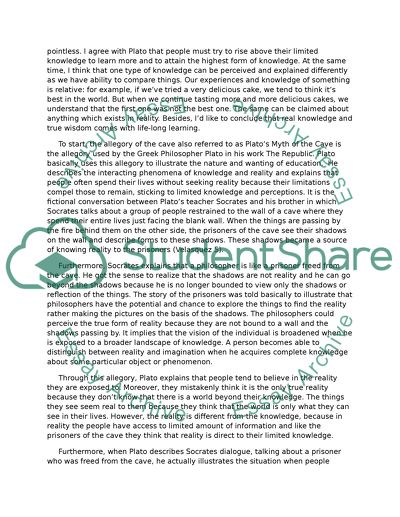Cite this document
(“Reality and Knowledge in Plato's Myth of the Cave Essay”, n.d.)
Reality and Knowledge in Plato's Myth of the Cave Essay. Retrieved from https://studentshare.org/philosophy/1442738-philosophy-is-a-footnote-to-plato
Reality and Knowledge in Plato's Myth of the Cave Essay. Retrieved from https://studentshare.org/philosophy/1442738-philosophy-is-a-footnote-to-plato
(Reality and Knowledge in Plato'S Myth of the Cave Essay)
Reality and Knowledge in Plato'S Myth of the Cave Essay. https://studentshare.org/philosophy/1442738-philosophy-is-a-footnote-to-plato.
Reality and Knowledge in Plato'S Myth of the Cave Essay. https://studentshare.org/philosophy/1442738-philosophy-is-a-footnote-to-plato.
“Reality and Knowledge in Plato'S Myth of the Cave Essay”, n.d. https://studentshare.org/philosophy/1442738-philosophy-is-a-footnote-to-plato.


